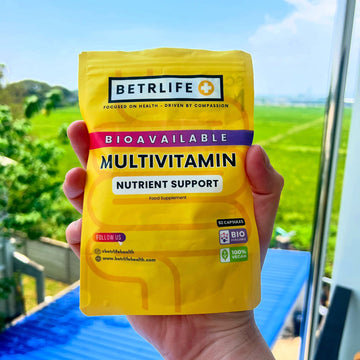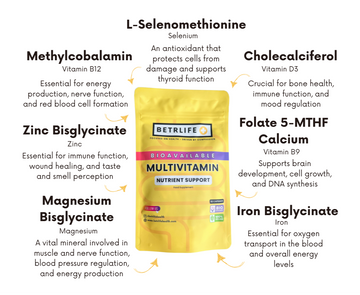Understanding Nutrient Deficiencies in IBD
Living with Crohn’s disease, ulcerative colitis, or any form of inflammatory bowel disease (IBD) often means dealing with more than just digestive symptoms. One important aspect that sometimes gets overlooked is nutrition.
People with IBD can be at higher risk of developing nutrient deficiencies for a variety of reasons. According to the British Dietetic Association (BDA), these can include poor nutrient absorption due to inflammation, increased nutrient needs during flare-ups, or the impact of certain treatments and restricted diets.
Why Does This Happen?
Inflammation in the gut can make it harder for your body to absorb the nutrients from food. Some people may avoid certain foods to help manage symptoms, which can also limit nutrient intake. In addition, some medications used to treat IBD can affect how well your body uses or absorbs key vitamins and minerals.
Why It Matters
Nutrient deficiencies can contribute to fatigue, low immunity, poor wound healing, and other health concerns, adding to the everyday challenges of living with IBD. That’s why working with a healthcare professional and dietitian to monitor your nutritional status is so important.
How Betrlife Health Supports You
At Betrlife Health, we understand how important it is to support nutritional needs in a way that’s gentle on the gut and easy for the body to absorb. Our multivitamin is thoughtfully designed using bioavailable, methylated, and chelatedforms of key nutrients to support better absorption. While our product does not treat or cure IBD, it can help fill nutritional gaps and support your daily wellbeing.
Always Speak to Your Healthcare Team
Everyone’s nutritional needs are unique. It’s always best to discuss any supplements or dietary changes with your dietitian, IBD nurse, or doctor to ensure you’re getting the right support for your individual situation.





